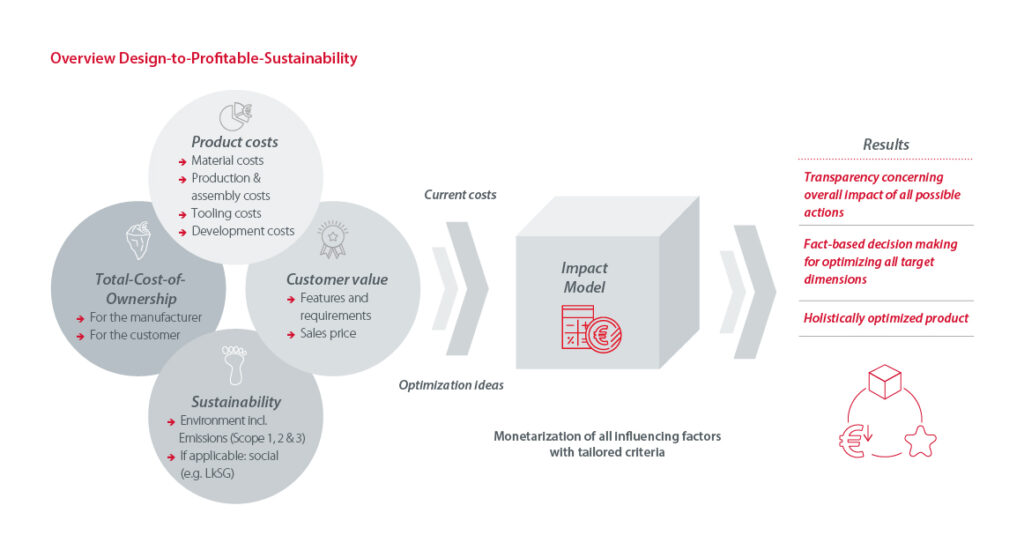The social and economic demands on the sustainability of products are constantly increasing. At the same time, companies are feeling the pressure to minimize their own costs and maximize the value of the product for the customer. This creates the major challenge in product development of optimizing these interrelated but often conflicting objectives in order to achieve the best result from the company’s point of view. Our Design-to-Profitable Sustainability approach aims precisely to address these complex relationships between sustainability, costs and product value.
Our approach extends the proven design-to-cost method. We optimize not only material, production costs and total cost of ownership, but also sustainability factors such as CO
In order to evaluate all optimization ideas, the target values to be considered are reduced to a common denominator. We use the monetary impact for this. All optimization ideas are then structured in a morphological box and the possible solutions that meet the constraints are identified. The total costs of these solutions are then evaluated. In this way, the competing effects are objectively evaluated with regard to an overall optimum. As a result, optimal design decisions can be made.

Project results
- Transparency concerning product costs, including the costs of sustainability aspects
- Tailored evaluation model for assessing optimization ideas
- Achievement of the overall optimum through fact-based design decisions
